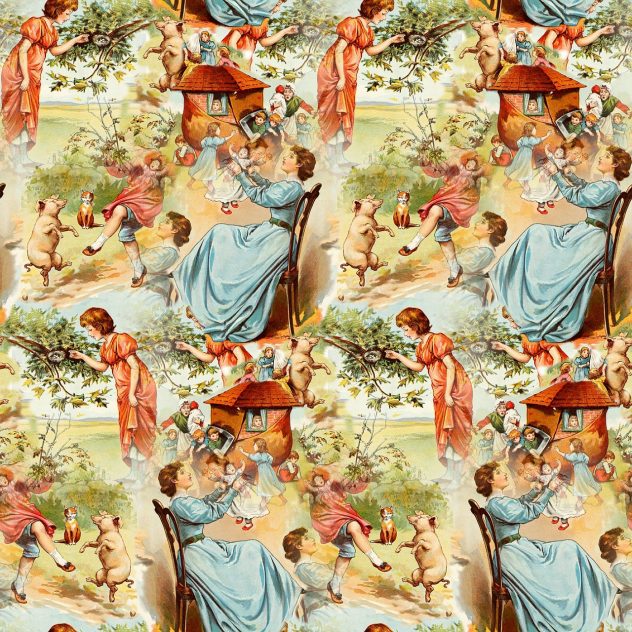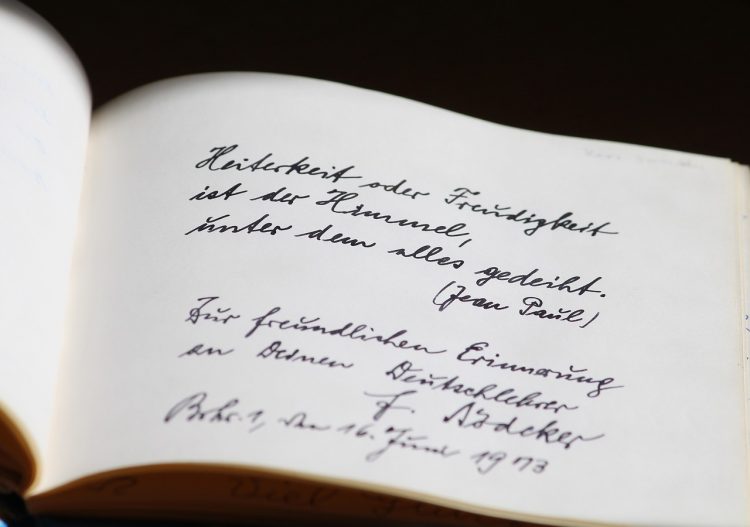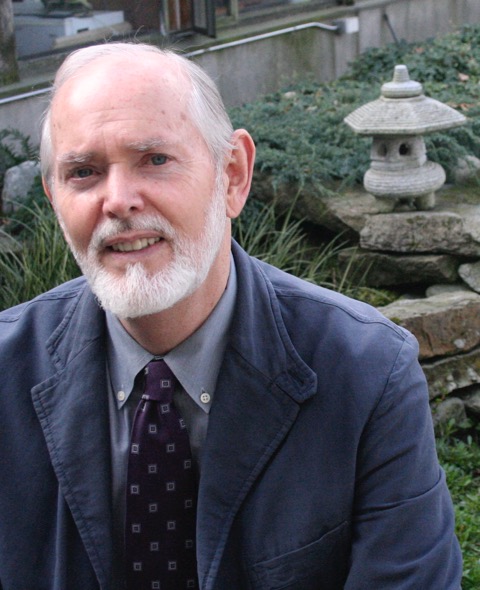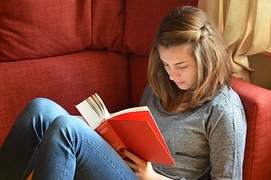By Kieran Egan (Emeritus Professor of Education)
In the beginning of human cultures, poets were the most important people in the society. They spun and sung the stories which told the people who they were and how they should behave. Homer was not merely a poet for the idle hours of the Greeks, but he told them what it meant to be Greek, how Greeks behaved, and gave a great deal of practical guidance for everyday life. And, of course, his songs have continued for millennia to enchant people far from Greece. If that breaker of men, Achilles, wanted to be remembered forever, he was lucky in his chronicler—who coaxes us still by asking the question and giving the answer:
‘Who is the sweetest of all the singers, who is it delights you most?’
‘The blind man who lives on rocky Chios. All his songs are the best, now and forever.’
As for ancient cultures, so through the history of all societies across the world, the poets were prized above others. Maybe only a coincidence, but the dominance of poetry over people’s minds came to a gradual end with the on-set of mass literacy taught in modern school. And within the lifetime of the oldest among us, poetry ceased to maintain its social importance and honour among people, except perhaps in the debased forms in which it is tenuously present in some modern songs. This great calamity to humankind, as some view it, seems to have happened largely without being noticed, without much comment, and without attempts, proportionate to the damage, to forestall it.
The students who emerge from typical schools today are all required to study and write some poetry. Millions and millions and millions of students have experienced this exercise. Yet of these millions hardly any throughout their whole lives will ever buy a book of poetry, and vanishingly few will buy a book of a living poet. Also, unlike in previous generations, today’s students are not typically required to learn any poetry by heart. So very few people now carry around in their minds the most powerful, condensed, and memorable meanings that have been expressed in words. This vast impoverishment of minds was not anyone’s intention, of course, and yet the calamity has occurred in the face of attempts in schools to engage students with poetry.
What has gone wrong? Why are schools not managing to engage students with poetry and even making huge numbers actively hostile to poetry, or, perhaps worse, completely indifferent to it?
Here are some possible answers:
Poetry is commonly treated as another school subject—part of Language Arts or English— and on par with Geometry or History, and students are consequently encouraged to see it as somewhat similar, as “school work”—they have assignments, they have to study poems, maybe do poetry homework, and so on. This takes it rather far from the “muse of fire”;
A lot of modern poetry is complex and intimidating, following new forms developed by, say W.H. Auden or T.S. Eliot. Without proper preparation most people are unable to work out what’s going on in the poems;
The reduced reliance on traditional forms of poetry, and the generation of new kinds of “free verse,” and complex integrations of the two, make the challenge of writing good modern poetry much harder. Many would-be poets today are attracted by the “free” part of free verse and too commonly write varied kinds of obscure drivel, and foredoomed attempts to see the meaning in such drivel alienates many from all modern poetry.
We now are in a situation where nothing can be done, as so many teachers today have also suffered the same calamity in their own schooling. They cannot help students engage with poetry because it does not engage them, except in trivial ways. Most people today may reasonably say they can live entirely satisfactorily without poetry. And, of course, most do. Associated with the withering of poetry is the loss of any sense of why it matters.
Imaginative Education: Poetic Tools
What can Imaginative Education and cognitive tools do to help those who want ideas for recapturing students’ engagement with poetry?
Well, after recognizing that the Hallmark card greeting is not the paradigm form of a poem, and recognizing that introducing children to poetry does not require getting them to “appreciate” the “best” poetry, we might explore what we may learn from those cognitive tools the students already have available to learn with.

Very young children seem generally fine with Mother Goose rhymes, and they get pleasure and see the point of these odd forms of language that are unlike anything they use in the everyday world. The toolkit of oral language suggests we should find, and encourage saying and singing and shouting aloud verse with strong narrative forms, thumping rhymes and rhythms, the most vivid images, fun with metaphors, and a rollicking story.
The toolkit of literacy suggests we should look for examples with heroic content, dealing with human extremes and limit of experience, endurance, courage, and all the old virtues in strong narratives that bring out the wonderful, the exotic, emotional extremes, and human struggles for freedom, security, overcoming adversity, striving for fulfillment, and so on. Philosophic engagement in poetry will be caught with all the above but with powerful ideas and searching for transcendence, for truth and clarity in the complexities of everyday life, and with poems that emphasize the potential agency and commitments of the protagonists.
And irony can eat anything.
It would be possible to list a bunch of examples of each, but my notes towards doing so are heavily influenced by my own experience, and were infected with the markers of my time and place, which are different from students today. I could begin, perhaps, on our Imaginative Literacy Program website where I could create a section in which I could give my examples that fill out the above, and then you might add yours? Any interest? Mind you, you will already find suggestions and help on that page as it is.
Remember that the best models for the young are not necessarily always or perhaps very often works by the greatest poets, but instead what we can offer to students are engaging steps that will carry them gradually to the works of the greatest poets.
And, of course, you may not consider the withering of poetry in our society a calamity or even a pity.




I would love to see your list and notes.
Ah Kieran, that this should reach my ears today is coincidental. I rarely despair in the face of our youth’s disengagement with beauty and the divine (two things that can be found in abundance in some poetry). I experience this disengagement as a call to arms, a chance for me to bring all my imaginative cognitive tool skills into service. But, today….
We have read the picture book/poem, “The Other Way to Listen” by Byrd Baylor and Peter Parnall. Today, I was encouraging them to write a theme sentence, one they would be able to back up by discussing the literary elements and devices in the poem. I didn’t for a moment think this was an assign-and-sit-back exercise. There are many, many parts I need to scaffold, teach, and engage. What I was not prepared for was the universal inability to connect with any of the ways in which I “explained” spirituality/spirit/other ways of knowing/wisdom. A couple of these 13 to 16-year-olds could find a handhold but most of them couldn’t identify a single person that they would consider spiritual. They couldn’t identify an experience they’ve had that they would consider spiritual. They couldn’t come up with an example of what spirit might be or mean in our current culture and society. The old man in the poem who listens to trees and lizards and corn singing was considered at least a little bit mentally ill by even the most well-meaning student, and psychotic or on drugs by those who had no time for the concepts or story.
I believe, that among other factors, it is a lack of profound, deeply beautiful, reverent, ecstatic poetry in their lives. Upon checking, not one had any use for poetry. (Fortunately, my second class of the day had some believers, students who love poetry and deep thoughts – I stepped off the ledge and back into the classroom.
It is a puzzle, why only some students can glimpse what poetry is about and does–or, as one student recently noted–“Everything but poetry is shit.” I am reminded, too, of Zbigniew Herbert’s frightening “Episode in a Library”
“A blonde girl is bent over a poem. With a pencil as sharp as a lancet she transfers the words to a black page and changes them into strokes, accents, caesuras. The lament of a fallen poet now looks like a salamander eaten away by ants. When we carried him away from machine-gun fire, I believed that his still warm body would be resurrected in the word. Now as I watch the death of the words, i know there is no limit to decay. All that will be left after us in the black earth will be scattered syllables. Accents over nothingness and dust.”
I suppose it is the treatment of poetry as an academic task like studying history or science, where the students have to learn to be mini-critics rather than being allowed poetry as a fantastic delight after they have done school stuff. And without all that fuss of having them learn or study or explain poems. They are simply there for our delight. If we forget all the other stuff, there’s perhaps a better chance that more will get the point.
I adore poetry. However, most people have no concept of modern poetry. They’ve been taught that poetry is stuffy and old-fashioned, and something to interpret to the the teacher’s liking. I love Billy Collins’ take on this:
Introduction to Poetry
by Billy Collins
I ask them to take a poem
and hold it up to the light
like a color slide
or press an ear against its hive.
I say drop a mouse into a poem
and watch him probe his way out,
or walk inside the poem’s room
and feel the walls for a light switch.
I want them to waterski
across the surface of a poem
waving at the author’s name on the shore.
But all they want to do
is tie the poem to a chair with rope
and torture a confession out of it.
They begin beating it with a hose
to find out what it really means.
Hi Vicki–what a great poem to share. Thank you. So true!
I have forward the comment on to Dr. Egan for reply too 🙂
This is spectacular – thanks for sharing!
Haiku poems can be a good start –
I do think wide reading /exposure of poetry without intense analysis, is also good start – just as we encourage for fiction and non-fiction.
Maybe you are looking in the wrong place however? I believe that the cultural inheritor of Homer’s Odyssey and Illiad is (currently) movies. Making a movie is a rhetorical proposition, with parallel techniques to poetic composition such as word order, layout, rhythm, imagery and form. Irony too. And students do relate to movies as a form.